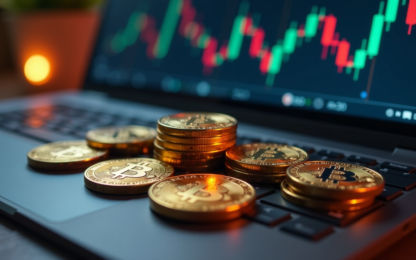
What next for the Turkish lira? U-turn in policy signals new era
- The Turkish lira has lost 70% of its value in the last two years
- President Erdoğan had pursued highly unconventional and aggressive monetary policy
- Spiralling inflation and collapsing confidence have forced a U-turn, with interest rates now up to 25%
In May, we put together a piece on the Turkish lira in the aftermath of Recep Tayyip Erdoğan’s reelection, when the controversial president won 52% of the votes in Turkey’s first ever presidential run-off.
The nation’s currency plunged to an all-time low, with 20 Turkish lira required to purchase one dollar. Only two years previously, 8 lira would have been enough.
Ahead of the central bank’s latest interest rate decision two weeks ago, the exchange rate had fallen to 27:1, representing a devaluation of 70% in two years.
The reasons for the crippling devaluation of the Turkish lira are many, but there is one factor which cannot be overstated: monetary policy. As the rest of the world has hiked interest rates to put a lid on inflation, Erdoğan has refused to fall in line.
Repeatedly bashing the “interest rate lobby”, he has referred to higher borrowing costs as “the mother and father of all evil”. Amid his re-election campaign, he emphatically outlined that his stance against interest rate policy would not be changing.
“Please do follow me in the aftermath of the elections, and you will see that inflation will be going down along with interest rates,” Erdoğan told CNN ahead of the election in May. Pushed further on whether that meant there would be no change in economic policy, he replied unequivocally, “Yes. Absolutely.”
To show how contrarian the policy was, a comparison to the US in the next chart is useful, dated as of those comments in May 2023. While the US has been among the more aggressive regarding interest rates, the fact that Turkey was cutting rates during 2022 tells you all you need to know.
Erdoğan concedes a U-turn is necessary
Copy link to sectionA few months on, Erdoğan has finally acknowledged that a shift in policy is unavoidable, despite crusading against high interest rates for much of his political career.
“With the help of tight monetary policy, we will bring inflation back down to single digits,” he said at a press conference in Ankara. “We will maintain fiscal discipline, which we see as the foundation of confidence and stability in our economy.”
The central bank subsequently hiked rates to 25%, taking the market by surprise, which had been anticipating an increase to 20%. It follows previous hikes in June and July, which had brought the rate to 17.5% before the latest announcement.
Inflation is rampant in Turkey
Copy link to sectionThe move will go some way to appease the legions of economists who had decried Erdoğan’s fiscal and monetary approaches.
Inflation in Turkey rose above 85% in Q4 of last year. While that is a jarring figure, it may be the fact that the trajectory is again on the up that will be of even greater concern. The rate had fallen below 40% as summer started, however the most recent figures placed it at 59%. Erdoğan conceded that it will likely hit 65% before the end of the year.
Erdoğan’s government also raised public sector pay and gave away free gas earlier this year as he campaigned for reelection, further undermining confidence both domestically and internationally in the sustainability of the Turkish economy.
We covered the dawn of a supposed new monetary regime in Turkey in June when freshly appointed finance minister Mehmet Şimşek promised that Turkey would return to “rational” policies.
“Transparency, consistency, predictability and compliance with international norms will be our basic principles in achieving the goal of raising social welfare,” he said as he formally took the role of finance minister.
Turkey has no choice but to return to a rational basis. We will prioritise macro-financial stability.
Finance minister Mehmet Şimşek
However, Erdoğan’s control over the central bank and decision-making policy is notorious, and doubt was plenty that the regime would change meaningfully, with the bemusement reinforced off the back of defiant comments from Erdoğan that tight monetary policy would not be introduced.
But finally, the president has performed a U-turn. Markets reacted promptly, with the lira strengthening 5%. It remains a currency that has been decimated, and the road ahead is rocky. At least there now appears to be intent to fix it, even if the damage to date has been severe.








